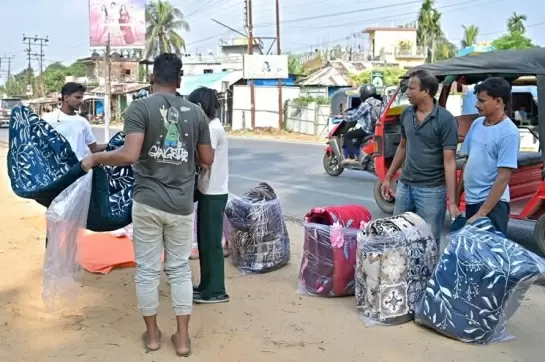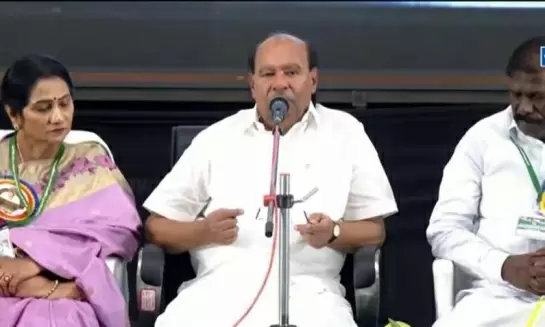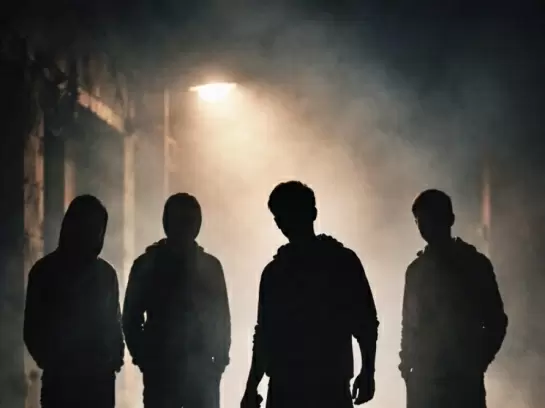Here's a treatment for mob violence against doctors in India
21-June-2019
Now that the doctors' strike has been called off, the moot question is, will this find space in the news again only when another doctor is roughed up or killed by disgruntled relatives? With the Supreme Court ruling out protection to doctors at the cost of public money, yet another question is, at whose cost is a politician given protection? Why are the doctors less deserving?
If a solution to the mob violence against doctors and their properties is not found then medical profession will be considered "dangerous" and the clamour to take up medicine as a career will go down. As members of a profession which is supposed to respond to human suffering, doctors have a social responsibility. But will society reciprocate?
There is an outrage when it comes to violence against women, children or the common man. People gather in large numbers with placards and raise slogans on the injustice meted out. Rightfully it exerts pressure on the concerned establishments to act.
But have we seen an outrage, eve, when a doctor is grievously injured by a mindless mob? Why don't we see people on the streets holding placards and seeking action against those unleashing violence on the medical fraternity?
Violence against doctors is certainly not India specific. It is a global phenomenon. The US, Britain, China, Bangladesh, Pakistan have all had victims of violence. A few years ago, a paediatrician in China's Fujian province was injured after leaping out of a fifth-floor window to escape angry relatives of a newborn baby who had died under his care.
According to a study by the Indian Medical Association, over 75 per cent of doctors have faced violence at work. But how many cases have been registered on the patients and their relatives under the Prevention of Violence Against Doctors Act?
A cycle of violent strikes and negative media coverage has tarnished the image of the medical community at large. Many people now view doctors with a feeling of troubled dependence. Doctors have turned a soft target not only to the public but the media too. Most mainstream channels and newspapers seldom highlight the other side.
To lean on to the side of the patient/relatives and turn a blind eye to the doctor's stance is nothing but prejudice. Whenever there is an allegation of medical negligence, only the patient's side gets prominence. Either there is no hospital version or it is given a few seconds in the passing. The anchors who debate on prime time come with a fixed stance. Why call it a debate then?
Doctors are given very little time to reason out their side. They are repeatedly pounced upon as though they entered the medical profession with a sole purpose of killing someone.
Doctors have traditionally been regarded highly by society. But the present impression of private business-mindedness of some in the profession has led to a poor image of doctors. That said, how much has the government facilitated in providing electricity or water at non- commercial rates?
What hides in the hospital bill of a patient is the increasing costs on medical equipment, the commercial rates imposed on electricity, water and the manpower that has now become far more expensive. Can the government and public expect state-of-art treatment at dirt cheap price?
On one hand the public is bombarded with unsupervised ads that promise short-cut cure, one stop solution to various ailments, over simplified medicines, easy alternatives and so on; on the other hand there are news reports that scream of medical negligence (most often inaccurate or judgmental) shaking the faith and trust that the people have on doctors.
While the news on achievements of hospitals and doctors are a few and subtle, the reports on medical negligence are sensationalised and blaring.
It is impossible to curb violence against doctors unless there is definitely a complete overhaul of the existing economic system and healthcare system, with increased communication between the doctors and patients, filling crucial gaps in communication between doctors, patients and relatives. Doctors should be not be overburdened and should have enough time to exchange the prognosis, complications and side effects of treatment with patients and their relatives.
Doctors should play a proactive role and ensure ethical medical practice. The medical curriculum should include soft-skills and communication skills required to empathise, remain calm and be patient irrespective of repeated prodding by the anxious patients.
Rather than intimidating the doctors and nurses by barging into wards and shelling them with a barrage of questions even as they grapple with the high patient inflow in available infrastructure, it is important for the media to play a responsible role in bringing out the best of the doctors and project role models such that the others are inspired to be ethical. IANS
Bangladesh Army Watches As Yunus Administration Grapples With Violence, Chaos
Sri Lankan Navy Arrests 12 TN Fishermen, Impounds Trawler Near Dhanushkodi
Protests Outside Bangladesh High Commission in Delhi Over Lynching of Hindu Youth
Ragging Row Erupts at RG Kar Medical College; First-Year Students File Complaint
Intel Flags ISI Plot To Incite Anti-India Fury In Bangladesh, Push New Delhi Into Military Response









